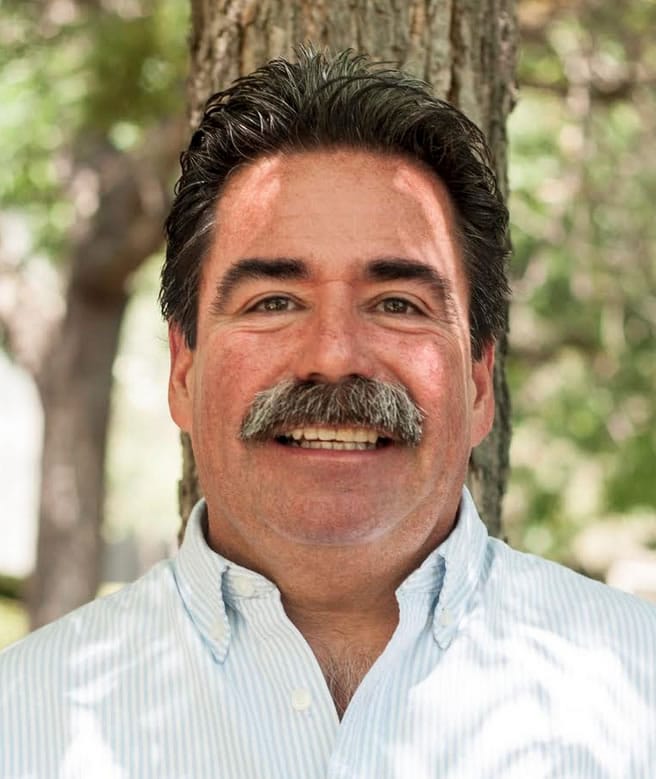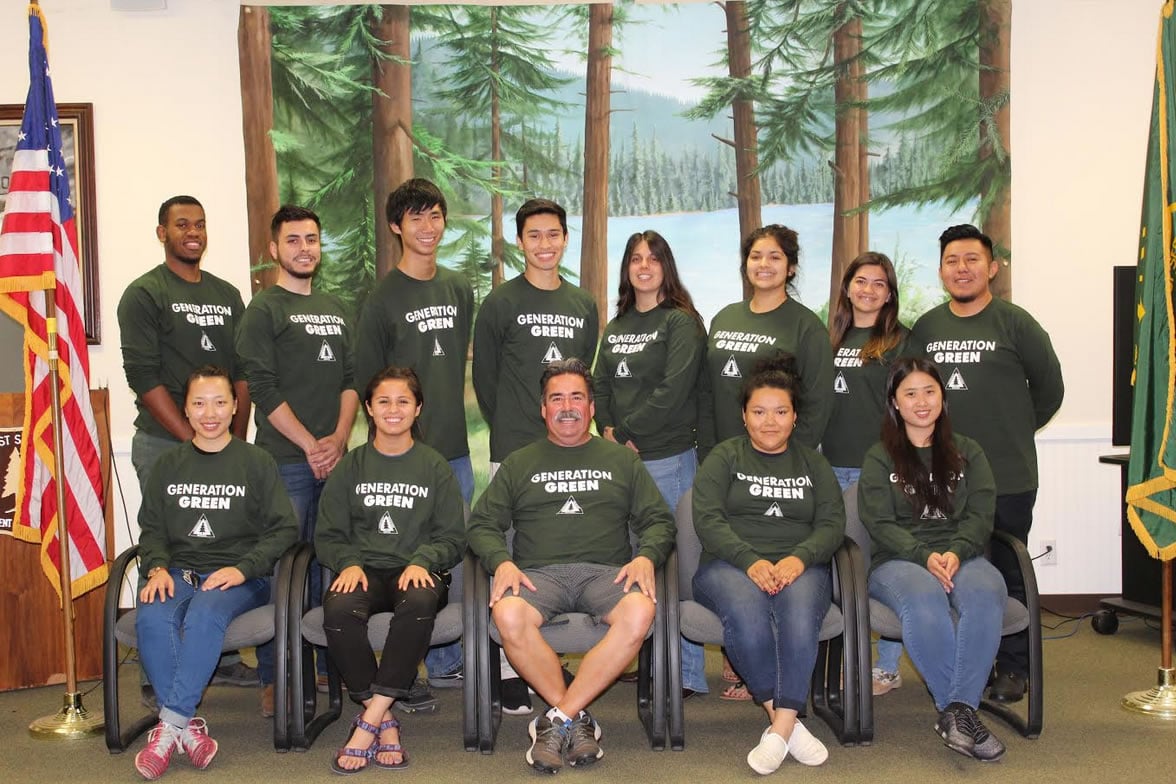The Padrino (Part 1)

During his first few days working for the US Forest Service in California’s Sierra National Forest, James Oftedal would have walked home—if he’d known the way. He was out of his element, and ready to resume life in a rough area of Fresno, where he’d grown up. In this new, alien environment of the forest, the layer of toughness he’d developed was useless. Although he didn’t know it during those first few days, he was at the edge of a profound transformation.
“My story is that I’m a product of the Juvenile Justice system. When you live in a tough neighborhood, when you wake up, you have to put the shield on and be tough. And it wasn’t until I was 20 years old, and got a job with the Forest Service, and went to work in the forest, that I was able to be a kid. I didn’t have to act tough up there. I could be myself. I could be a kid.”
Young man, raised in a rough neighborhood, doing farm labor, gets hired by US Forest Service. People around him fish, camp, say “howdy.” He begins to soak it all in. Life transformed, he works in USFS for thirty-seven years and counting…
This itself would be a story. But it’s only a tiny, tiny fraction of James’s full story. Twenty-one years ago he founded Generation Green. Since then, tens of thousands of children throughout California have been introduced to nature and given the tools for their own transformations. And more recently, James selected the Child Development Center at Reedley Community College, in Reedley, CA, for a Nature Explore Classroom. So it could be said that James has children covered from birth through college.
 Generation Green works with children from kindergarten through high school—focusing on underserved communities. During kindergarten through grade eight, the focus is on environmental education. After school programs get children learning about nature through a variety of activities. James sees this as a way of developing environmental responsibility through hands-on experience. During the high school years, when the danger of dropping out of school becomes real, Generation Green provides leadership skill-building, work practice and outdoor experiences. Continuing on to higher education is the expectation for all participants.
Generation Green works with children from kindergarten through high school—focusing on underserved communities. During kindergarten through grade eight, the focus is on environmental education. After school programs get children learning about nature through a variety of activities. James sees this as a way of developing environmental responsibility through hands-on experience. During the high school years, when the danger of dropping out of school becomes real, Generation Green provides leadership skill-building, work practice and outdoor experiences. Continuing on to higher education is the expectation for all participants.
James says that he wanted to develop a program based on “how my life went… Getting outdoors is healthy. Being a kid is healthy. Don’t grow up so fast.” Often, youth from underserved communities must work at such an early age that they don’t get time to dream about developing a career. James gives children opportunities for the kind of “aha” experience that changed his life. He wants them to understand that they, too, can have productive careers.
“My goal is to help youth, particularly youth who come from low income communities, connect to nature in a meaningful way. This benefits the child, our community, and our environment. It delights me to see them embrace their roles as good stewards of the land and to see their educational and career possibilities expand. They are literally going from picking fruit in the fields to picking careers related to natural resources and I am honored to help open the door for them.”
Mentorship is key to cultivating generational impact. Several of James’ team staff members have grown up through the Generation Green program, and are now paying it forward by coordinating many of the Generation Green’s activities. Here’s a particularly ingenious program activity that involves a complex web of skill-building, real-time practice, and mentorship.
One of the original youth programs is Generation Green’s “State Fair Leadership Camp” that serves forty high school students. They travel to Sacramento, spend nights in government facility barracks, and get public speaking classes each morning from their college aged mentors. At noon, the youth don Forest Service uniforms and staff educational stations, where they provide information to the public about their nature-related specialties. Fully bi-lingual, they become role models to the younger children visiting the fair, and help recruit them into conservation and green careers. The State Fair Leadership Camp unites so many levels of skill-building, mentorship, inspiration and teamwork that a full blog post could easily be written about this one program alone. The Generation Green Leadership Camp has since be replicated at the Los Angeles County Fair—inspiring youth to be the connecting force between the Forest Service and the diverse urban public as well.
Read “The Padrino (part 2)” later this week!
James will be a featured speaker at our upcoming Leadership Institute, “Building Resilience and Joy in Uncertain Times,” in Nebraska City, on July 23-26. Right now is the time to register, if you haven’t already.

